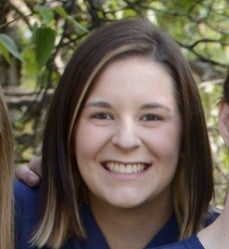
“Big things happened in my life because of Boise State’s Respiratory Care Program.”
How did you feel about your education at Boise State?
The desire that the program instilled in me to accomplish what the professors and staff believed I could completely astonishes me. The amount of dedication, heart, and passion they place into your work and students at Boise State is unrivaled. I know I have said thank you… But it will never be enough.
The faculty in the Department of Respiratory Care at Boise State will do whatever it takes to make sure that students are succeeding, and for that, I am eternally grateful. The program changed my life and made the job that I am doing now seem so much bigger and more important than I ever imagined.
Can you describe your job?
Being a respiratory therapist is a HARD job – physically, mentally, and emotionally. Depending on what your passion is, mine being pediatrics, you hold your patients’ hands through many different walks of life. From helping a baby takes its first breath, to easing their last breath when someone is ready to go, and everything in between… an RT is there. I was blessed enough to be given the opportunity to start out with my dream job.I am trained for the NICU, PICU, and the floors, and being one of two regional trauma centers, as well as a Cystic Fibrosis referral center… There is always a lot to do. The faculty in the program helped prepare me for the big world I entered when I started training, and though I know I have plenty to learn, I walk into work every day ready to do my job – and do it well.
How did your research experience enhance your learning?
Along with the clinical experience and the willingness of the faculty and preceptors to facilitate success in the hospitals, I learned a lot about the meaning of research and how much our field thrives because of it. Technology and medicine are constantly evolving. Being in the program helped prepare me to be proactive when it comes to finding out what we can do to improve our patients’ outcomes and quality of care – and ultimately the quality of their lives. I presented published research at the 2014 AARC National Congress and stood in front of people who are now my colleagues around the country and the world. This was huge – for both my self-confidence and my resume!
I spent the most important, yet challenging two years of my life in the program. I will never forget the contribution that the faculty made to my many successes.